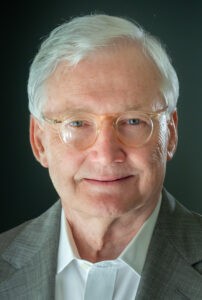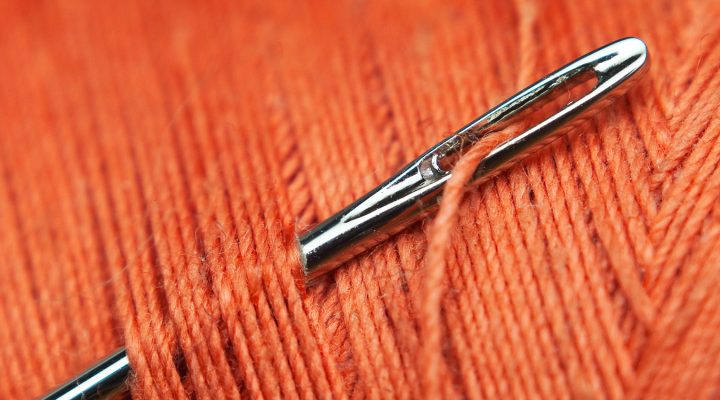You may have read the remarkable story about the life of Charles Feeney, who recently died at 92 after having given away almost all of his $8 billion to the causes he believed in. At some point in his life, he decided to give up his opulent lifestyle and give all his riches away, or almost all of them, while he still lived.
And he did. At the time of his death, he and his wife were living in a two-bedroom rented apartment in San Francisco.

Stephen Shoemaker
He also decided to give it all away anonymously, a rarity. From one fund he gave the money for 1,000 buildings on five continents, none of which bear his name. Universities, scientific research, medical schools, human rights groups, peace initiatives and more received generous funds, all with the condition of anonymity. He was the rich young ruler who did not go away sad when Jesus asked him to give it all away.
His story is in marked contrast to the adoration of riches that possesses a church that has veered away from the needle’s eye. Mammon, to use Jesus’ word, has become our secret idol.
How?
One is in the ways we have avoided serious attention to Jesus’ words about the dangers of riches, the spiritual dangers to our souls and the social dangers to societies that care little about the poor and vulnerable. We spiritualize and individualize the stories of the rich fool and the rich man and Lazarus. And the Apostle Paul was clear: “For the love of money is the root of all evils.”
Are you ready for the rest of the sentence? “It is through this craving that some have wandered away from the faith and pierced their hearts with many pangs.”
Who has not felt those pangs?
Jesus told his bewildered disciples: “How hard it is for a rich man to enter the kingdom of heaven. Again (again!), I tell you, it is easier for a camel to go through the eye of a needle than for a rich man to enter the kingdom of God.”
The church through the centuries has found 101 ingenious ways to wiggle itself out of that spiritual dilemma.
“We were seduced to believe wealthy people were smarter than most and morally untouched by the dangers of wealth.”
Another way is how the church has lionized wealthy people. As a young person in vacation Bible school, I heard stories of wealthy Christian businessmen. They were heroes along with the biblical characters. We were seduced to believe wealthy people were smarter than most and morally untouched by the dangers of wealth.
We saw this blindness in the ardent support of Donald Trump when he ran for president: If someone is on the Forbes list of wealthiest people in the world, that person would be supremely qualified to be president!
Another way is the church’s embrace of the personal gospel and neglect of the Social Gospel. Today the top 1% of Americans have 15 times the wealth of the bottom 50%. This is a moral and spiritual issue the church has been hesitant to address.
The new (Southern Baptist) speaker of the U.S. House of Representatives, Mike Johnson, responded to the latest gun massacre with characteristic privatizing of morality: “The end of the day … the problem is the human heart.” His words parallel the church’s preaching on the issues of money and wealth: Leave it to the realm of human heart.
Supply side economics, which has led to the rich getting richer and the poor getting poorer, to the massive redistribution of wealth upward, and the Citizens United decision of the U.S. Supreme Court, which has led to the flood of millions of dollars of dark money into politicians’ coffers, have garnered little opposition from the church. And many Christians have endorsed such policies.
Former president Jimmy Carter, however, was brave to state that America today has become “an oligarchy with unlimited political bribery.” For him, the personal gospel and the Social Gospel are one.
“It’s a toss-up whether America’s original sin was slavery or greed.”
The chief American religion is not Taoism but Dowism, the worship of the Dow Jones index. It’s a toss-up whether America’s original sin was slavery or greed. Calvinism asserted that wealth was a sure sign of one’s election. Such a doctrine flourished in America. The prosperity gospel has magnified the theological error.
When I was at Broadway Baptist Church in Fort Worth, some of us formed a group for a year-long study on servant leadership led by Diana Chambers of Church of the Savior in Washington, D.C. One of the most challenging and illuminating assignments was to write a money autobiography detailing our relationship with money through the years.
Perhaps every church should undergo an annual “mammon-o-gram” to check on its relationship with money. Years ago, Pulitzer Prize-winning political cartoonist Doug Marlette drew a picture of Jesus saying to a church leader, as to the rich young ruler, “Sell all and give to the poor.” He pictured the cleric cradling in his arms a cathedral-like structure, holding it away from Jesus. The main criticism he received for the cartoon was that he drew Jesus in a ragged robe. Jesus couldn’t be poor! And Jesus was not saying such words to the church!
When Jesus invited himself home for dinner with Zacchaeus, the rich tax collector, moved by the divine friendship, stood and said, “Lord, half of all I have I will give to the poor, and if I’ve cheated anyone, I will repay them 400%!” And Jesus said salvation has just happened!
Walter Rauschenbusch, father of the Social Gospel in America, commented: “Here a camel passed through the needle’s eye, and Jesus stood and cheered.” So Feeney and Zacchaeus we cheer, along with Jesus. Now it is the church’s turn.
Stephen Shoemaker serves as pastor of Grace Baptist Church in Statesville, N.C. He served previously as pastor of Myers Park Baptist in Charlotte, N.C.; Broadway Baptist in Fort Worth, Texas, and Crescent Hill Baptist in Louisville, Ky.


